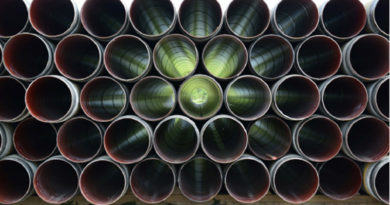
A regulation banning all products made with forced labor from the EU market – a moral obligation
Forced labour has been a reality for centuries. A century ago, in colonized countries and inhospitable jungles, forced labour was easy to hide from external observation, and the improvement of working conditions for those workers was very difficult to obtain. More than a century later, in this connected world, despite having plenty of real-time information about everything, forced labour remains a reality for too many, and it’s still a challenge to investigate and eliminate it. We can do better.
In 2021, there were around 27.6 million people working under forced labour across the world, especially in Asia, but also in other continents.
State authorities, private enterprises or individuals can force workers using violence or intimidation, or through more indirect means such as getting them indebted (via recruitment fees, for instance), retention of identity papers or threats of denunciation to immigration authorities. All these situations fall under the International Labour Organization indicators, one of the best tools we have to identify forced labour situations.
It’s time to change tactics and take a step forward, complementing our approach.
Forced labour is already a crime, but currently we have no mechanism to ensure that the products of this crime are not placed in our market. By banning these products from the internal market, we are using the power of our 450 million consumers to reduce the economic incentive to use forced labour and thus correct a moral harm, which is the circulation of products made using forced labour.
How will it work? Competent authorities will get information on a certain product – let’s call it “product X” -, either coming from a database of public sources on forced labour risks that will be created, or from submissions of information by civil society, companies or victims themselves.
Then, competent authorities use a risk-based approach to understand what is the risk that “product X” is contaminated with forced labour, based also on the information received from companies. If there is substantiated concern, a formal investigation starts, which will lead to concluding either that there is forced labour, or that there’s not forced labour
If there is forced labour, competent authorities will ban “product X”, and this ban will be enforceable by customs and market surveillance authorities. Thus ends the economic incentive for bringing forced labour products to the market in the EU.
Adopting this product ban is a moral obligation, but we must make sure our impact goes beyond a ban of products. That’s why, in the position we approved in the Parliament, we adopted two crucial changes.
The first is remediation for victims of forced labour, meaning that, when a product is banned, this ban can only be lifted if the workers that suffered from forced labour are compensated from the harms they suffered. Secondly, we adopt a specific approach for State-imposed forced labour. These situations are harder to prove and affect entire communities. It’s almost impossible for companies to choose not to use forced labour in the regions affected. Thus, we have made it easier to prove State-imposed forced labour, by reversing the burden of proof and placing it on the economic operators.
This regulation focuses on products, as it should, regardless of the size of the economic operators involved in the production, and it ensures all products are covered if they are tainted with forced labour.
There’s no minimum amount of forced labour that becomes acceptable. Companies know that if they use forced labour, or if they buy raw materials or components that are tainted with forced labour, their products will be banned from the internal market, losing access to a great source of revenue.
However, contrary to what some would argue, this regulation should not be seen as an extra burden for companies. Quite the opposite: this regulation will help to protect companies that play by the rules. This proposal will help, in particular, our SMEs, which are suffering from unfair competition from other parts of the world. This is a competition based on lower labour standards or, in this case, human rights violations, which translate into large unfair competitive advantages. We cannot let that happen.
At the moment, the USA already has a ban in place for imports of forced labour products, and some other countries are working on adopting one, such as Mexico and Canada. This shows us that the proposal is part of a larger trend of democracies worldwide demanding more accountability from companies regarding human rights. However, this also implies that, if we don’t approve our ban, the products banned in these countries are diverted to the European market and sold here to our consumers.
Lastly, the eradication of the economic incentive for using forced labour is greater if we combine our power with the power of those other markets.
I hope we can quickly negotiate and approve this proposal, so that the Union will have a strong, effective instrument to fight forced labour worldwide.




